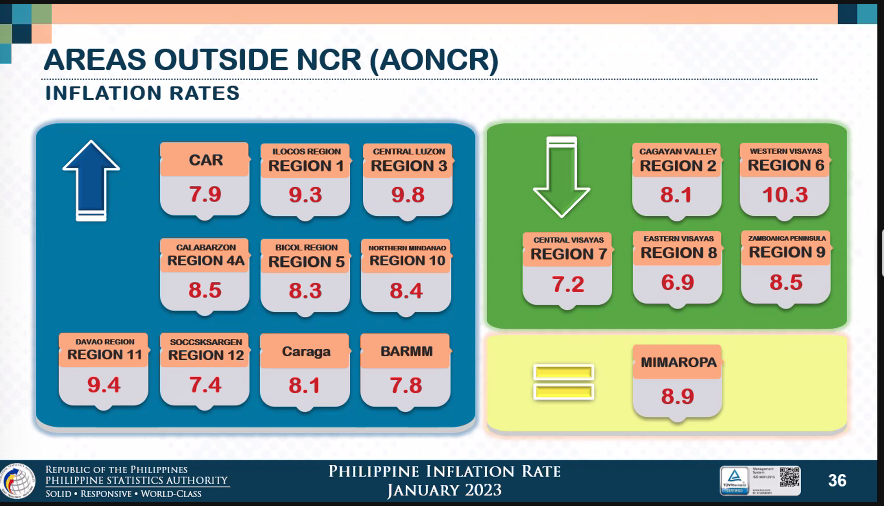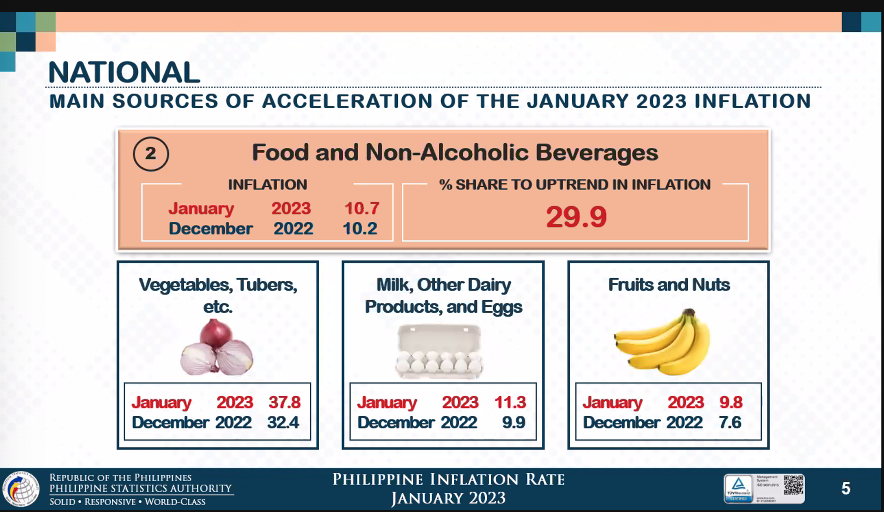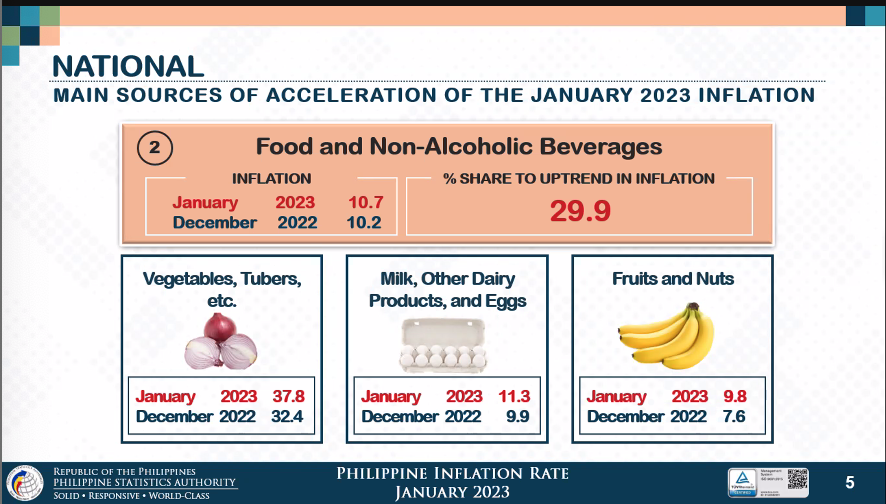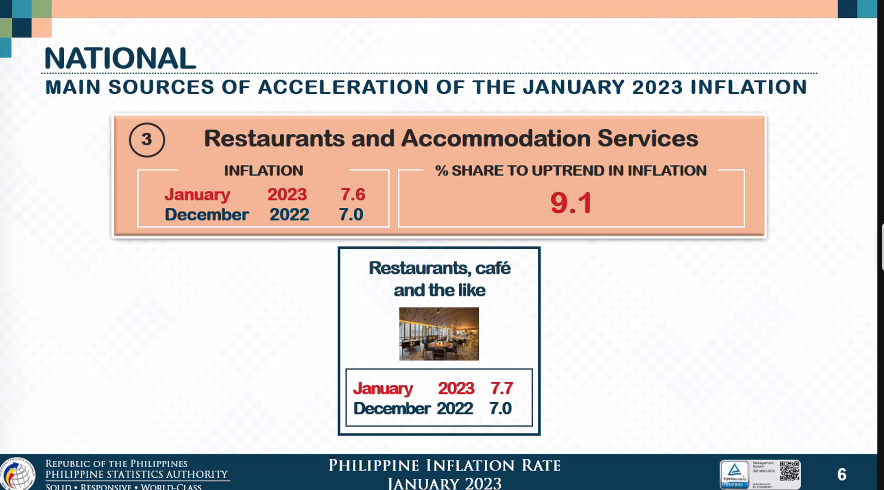The state statistics bureau reported on February 7 that inflation increased in the previous month, which was unexpected as the government had predicted a slowdown. The increase was mainly due to higher costs for water, electricity, and housing rental rates, as well as the continued rise in the prices of food, vegetables, and non-alcoholic beverages.
In January, inflation rose to 8.7 percent, which is higher than the 8.1 percent recorded in December, and the highest rate since November 2008’s 9.1 percent. This exceeds the government’s target range of 2 to 4 percent per year by a significant margin.
In NCR, the inflation rate was 8.6 percent, slightly lower than the national average. Meanwhile, the average inflation rate outside the NCR was 8.7 percent, with Western Visayas experiencing the highest rate of 10.3 percent, and Eastern Visayas the lowest at 6.9 percent.

Screengrab from National Statistician Claire Dennis Mapa’s report
The increase in inflation is mostly due to the rising costs of housing, water, electricity, gas, and other fuels, which rose from 7 percent to 8.5 percent, according to National Statistician Dennis Mapa.
The prices of food and non-alcoholic beverages also experienced a slight increase, rising from 10.2 percent to 10.7 percent. Meanwhile, the inflation rate for dining establishments and lodging services increased from 7 percent to 7.6 percent.



Screengrab from Dennis Mapa’s report
Unfortunately, the poorest 30 percent of income households were the most affected by the increase in costs, with inflation rising from 9.4 percent in December 2022 to 9.7 percent in January.
The government anticipates inflation to range between 2.5 to 4.5 percent in 2023 and return to within the target range by 2024.
To mitigate the upward pressure on prices, the National Economic and Development Authority will prioritize higher agricultural productivity, food supply augmentation, and energy security.
The Marcos administration extended the temporary tariff reductions on pork, rice, corn, and coal to increase the supplies of these goods and attempt to control inflation.








